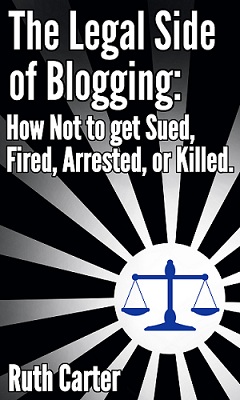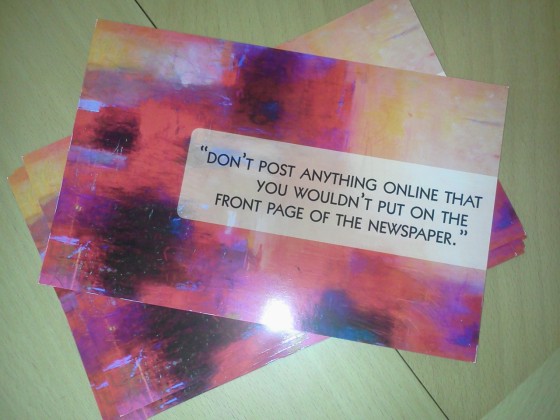Have you tried Periscope? It’s one of the new live streaming apps where you can let everyone into your world and they can post comments and questions. I’m on it. It’s pretty fun – except when it overheats my phone.
Of course, being a social media lawyer, I started thinking about what types of legal hot water someone could get into using this or any other live video app. Here’s my preliminary list:
Copyright
You own the content you post via Periscope, but you grant Periscope and anyone who has access to it permission to use it.
An artist may be upset with you if you use Periscope to display, distribute, or perform their work without their permission – i.e., if you’re playing someone’s song, doing a dramatic (or not so dramatic) reading, or showing someone’s art (even with an attribution).
Trademark
If you’re using Periscope to talk about products, make sure you’re not confusing people by giving the impression that you represent the company.
Federal Trade Commission Rules
If you are lucky enough to have sponsorship or otherwise be compensated for reviewing products, make sure you disclose that too. If you’re doing reviews on periscope, you’re legally required only to give truthful and accurate reviews of products and services. Otherwise, the FTC could fine you up to $11,000.
Trade Secrets
Every company has secrets that give them a competitive advantage. Make sure you don’t accidentally disclose your company secrets on your videos.
Privacy
Although there is no expectation of privacy in anything you do in public, there are a few exceptions for bathrooms, changing rooms, medical offices, lawyers’ offices, as well as within the walls of your home. Be thoughtful and respect full when it comes to shooting videos of others.
Remember, you have no expectation of privacy in anything you post online. Just like people have been fired for other social media posts, you can be fired for a Periscope video. You could also do tremendous reputational harm to yourself.
Defamation
I can foresee people using Periscope to vent when they are angry. Be careful that you don’t cross the line and tell a lie about another person. Even if you didn’t intend to tell a lie, you could still face a lawsuit for defamation. If you are especially upset, it may be best to wait 24 hours to calm down and verify your information before talking about the situation on live video. Think before you speak.
These legal issues apply to all live streaming video apps so be careful before you jump on your virtual soapbox. The FCC does not regulate online streaming video, so there are no “deadly words,” but there are also no 7-second delays or buttons to bleep you out.
These are my rules of thumb when it comes to posting anything on the internet:
- Don’t post anything online that you wouldn’t put on the front page of the newspaper.
- Assume everything you post will be seen by four people: your best friend, your worst enemy, your boss, and your mother. If you don’t want to one of those people to see what you’re thinking about posting, don’t say it.
This is an area of law that is still new and developing. I’m excited and curious to see what legal cases will come out of live video apps like Periscope and Meerkat. If you want additional information about the legalities of social media, please check out my book The Legal Side of Blogging: How Not to get Sued, Fired, Arrested, or Killed. You can also contact me directly or connect with me on Twitter, Facebook, YouTube, or LinkedIn.












